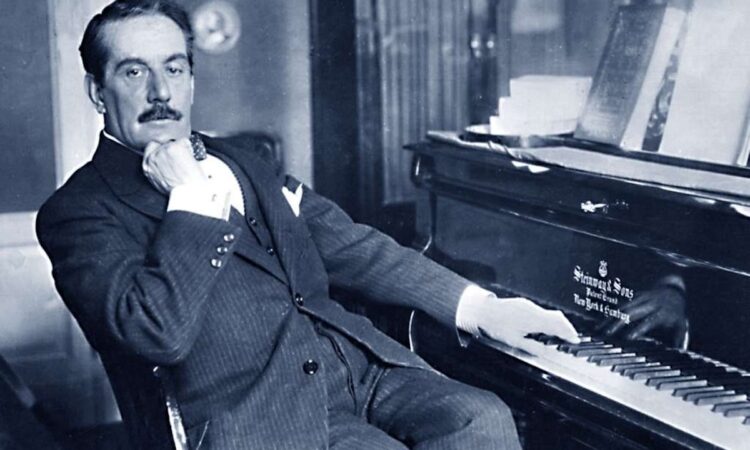This year marks the centenary of the passing of Giacomo Puccini, one of Italy’s most celebrated composers and a towering figure in the world of opera. Born on December 22, 1858, in Lucca, Tuscany, Puccini’s life and work remain deeply intertwined with his homeland, a region whose cultural and natural beauty profoundly shaped his artistry.
Puccini and Lucca: The Birthplace of Genius
Puccini was born into a family of musicians in Lucca, a charming Tuscan city surrounded by medieval walls. From an early age, he was immersed in music, thanks to his father’s legacy as a church organist and composer. Although his father passed away when Puccini was just five, the young prodigy continued his musical education under the guidance of his family and local teachers.
Lucca, with its rich artistic heritage and vibrant music scene, provided the perfect backdrop for Puccini’s early development. The city’s serene landscapes, the gentle flow of the Serchio River, and the grandeur of its historical architecture instilled in him a sense of drama and lyricism that would later define his operatic masterpieces.
Torre del Lago: A Composer’s Sanctuary
Puccini found his creative refuge in Torre del Lago, a small village near the Versilia coast, nestled between the Massaciuccoli Lake and the Tyrrhenian Sea. It was here that he composed many of his iconic operas, including La Bohème, Tosca, and Madama Butterfly.
Torre del Lago offered Puccini the tranquility and inspiration he sought. The natural beauty of the area, with its shimmering waters and lush landscapes, mirrored the emotional depth and vivid imagery of his music. Puccini famously said, “I love Torre del Lago because it is tranquil and peaceful, and it nourishes my soul.”
Today, Torre del Lago is home to the Puccini Festival, an annual celebration of the composer’s legacy held at the Gran Teatro all’Aperto, an open-air theater overlooking the lake. This year, the festival has taken on special significance, presenting a series of grand productions to honor the centenary of Puccini’s death.
Tuscany in Puccini’s Operas
While Puccini’s operas are often set in faraway lands—Paris, Rome, Japan, and China—their emotional core is undeniably Tuscan. The composer’s ability to evoke human passion, tragedy, and beauty reflects the warmth and intensity of his homeland’s culture. His music carries echoes of Tuscany’s rolling hills, vibrant festivals, and timeless artistry.
Puccini’s operatic heroines, such as Mimi, Tosca, and Cio-Cio-San, embody the dramatic contrasts and complexities that also characterize Tuscany itself—a region where history and modernity, tradition and innovation, coexist in perfect harmony.
The last days
Giacomo Puccini passed away on November 29, 1924, in Brussels, Belgium. He had traveled there to undergo treatment for throat cancer, a condition that had plagued him in his later years. Despite medical efforts, complications following surgery led to his untimely death. His body was later returned to his beloved Tuscany, where he was laid to rest in the family chapel at Torre del Lago, the place he had cherished most during his life.
A Year of Commemoration
In 2024, Tuscany has planned a variety of events to celebrate Puccini’s enduring legacy. From exhibitions in Lucca and Torre del Lago to concerts and special guided tours, the region invites visitors to walk in the maestro’s footsteps. Highlights include rare manuscript displays at the Puccini Museum in Lucca and a commemorative concert at the Teatro del Giglio, where Puccini premiered some of his earliest works.
For those traveling to Tuscany, this is a unique opportunity to experience the places that shaped one of the greatest composers of all time. Whether strolling through the cobbled streets of Lucca, enjoying the serene beauty of Torre del Lago, or attending a live performance of Puccini’s operas, visitors can connect deeply with the man whose music continues to resonate across the globe.
Conclusion
As the world remembers Giacomo Puccini on the centenary of his death, Tuscany stands as a living testament to his genius. The landscapes, traditions, and people of this region were not only his muse but also the foundation of his extraordinary legacy. In celebrating Puccini, we celebrate Tuscany itself—a land of inspiration, passion, and timeless beauty
Discover more from Florence Daily News
Subscribe to get the latest posts sent to your email.

